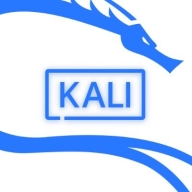

Bugcrowd and Kali Linux are key players in the cybersecurity industry. Bugcrowd stands out for its pricing and comprehensive support offerings, while Kali Linux takes the lead with its superior features, justifying its associated costs.
Features: Bugcrowd facilitates crowdsourced security testing with a dynamic vulnerability identification platform, providing ease in report generation through drag-and-drop and markdown capabilities. It also offers exclusive features like the Collections, aiding targeted testing. Kali Linux offers a vast array of penetration testing tools including Nmap, SQLMap, and the Metasploit Framework. It provides a robust toolkit for diverse security tasks, enhanced by its new tools for system optimization and enhanced documentation support.
Room for Improvement: Bugcrowd could enhance its offerings by expanding its community support and providing more robust reporting analytics and client-side integrations. Further, a more interactive user interface could make the platform more engaging. Kali Linux could benefit from streamlined documentation integration and enhanced support channels beyond the community. Adding more automated patch management features and strengthening its tool update process could also enhance its utility.
Ease of Deployment and Customer Service: Bugcrowd is cloud-based, ensuring easy integration and offering structured customer service crucial for effective security testing management. Kali Linux typically requires deployment on dedicated hardware or virtual environments, relying heavily on its community-driven support, which can be extensive but lacks the structured service of a dedicated support team.
Pricing and ROI: Bugcrowd operates on a subscription model, offering predictable expenses and a calculated ROI through scalable services. Its structured pricing allows for easy budgeting, though the costs may be significant for smaller enterprises. Kali Linux, being free and open-source, presents negligible setup costs, making it cost-effective. The ROI is notable for organizations seeking to leverage a comprehensive security toolkit without substantial financial outlay.


By combining a vast and diverse workforce with a results-driven model, crowdsourced security programs outperform traditional methods-every time.
Kali Linux is widely used by organizations for penetration testing, vulnerability assessments, web application security, network audits, ethical hacking, and open-source intelligence, providing extensive free features.
Organizations run Kali Linux in virtualized environments alongside other operating systems, employing tools for automated scans, malware identification, infrastructure testing, and application development or hosting. These users benefit from lower maintenance requirements and a smaller footprint. The toolset includes Nmap, SQLMap, Metasploit, and Hydra, ensuring effective security assessments. Its high scalability, performance, user-friendly interface, and extensive documentation enhance the platform's usability. Known for stability, flexibility, and virus resistance, Kali Linux supports web security, troubleshooting, and configuration tasks comprehensively.
What are the most important features of Kali Linux?Kali Linux can support industries in improving security through stable and flexible environments that resist viruses and provide extensive documentation. Users employ it for web security, troubleshooting, and configuring capabilities. Necessary improvements include automation, user-friendliness, and integrating AI and blockchain. Enhancements in security features, faster installations, and better learning tools are also essential. Machine learning integration and non-enterprise user functionalities can address current limitations.
We monitor all AWS Marketplace reviews to prevent fraudulent reviews and keep review quality high. We do not post reviews by company employees or direct competitors. We validate each review for authenticity via cross-reference with LinkedIn, and personal follow-up with the reviewer when necessary.